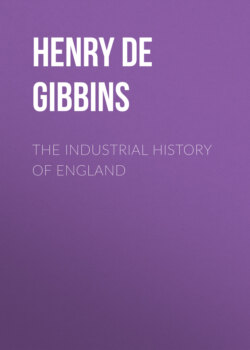Читать книгу The Industrial History of England - Henry de Beltgens Gibbins - Страница 35
На сайте Литреса книга снята с продажи.
§ 5. Manufactures in this period: Flemish weavers
Оглавление—We now turn from the subject of trade and finance to that of manufacturing industry. On doing so, we find that the chief industry is that of weaving coarse woollen cloth. An industry so necessary as this, and one too that can be carried on in a simple state of society with such ease, as a domestic manufacture, would naturally always exist, even from the most uncivilized times. This had been the case in England. But it is noticeable that although Henry of Huntingdon mentions the export of “fine wool” as one of the chief English exports, and although England had always been in a specially favourable position for growing wool, her manufacture of it had not developed to any great extent. Nevertheless it was practised as a domestic industry in every rural and urban community, and at this period already had its gilds—a sure sign of growth. Indeed one of the oldest craft gilds was that of the London weavers, of which we find mention in the time of Henry I. (A.D. 1100). And in this reign, too, we first hear of the arrival of Flemish immigrants in this country, who helped largely both then and subsequently in the development of the woollen manufacture. Some Flemings had come over indeed in the days of William the Norman, having been driven from Flanders by an incursion of the sea, and had settled at Carlisle. But Henry I., as we read in {37} Higden’s Chronicle, transferred them to Pembrokeshire in A.D. 1111: “Flandrenses, tempore regis Henrici primi, ad occidentalem Walliæ partem, apud Haverford, sunt translati.” Traces of them remained till a comparatively recent period, and the names of the village of Flemingston, and of the road called the Via Flandrica, running over the crest of the Precelly mountains, afford striking evidence of their settlement there, as also does the name Tucking Mill (i.e. Cloth-making mill, from German and Flemish tuch, “a cloth”). Norfolk also had from early times been the seat of the woollen industry, and had had similar influxes of Flemish weavers. They do not, however, become important till the reign of Edward III., when we shall find that English cloth manufacture begins to develop considerably. In this period, all we can say is that England was more famed for the wool that it grew than for the cloth which it manufactured therefrom, and it had yet to learn most of its improvements from lessons taught by foreigners.
